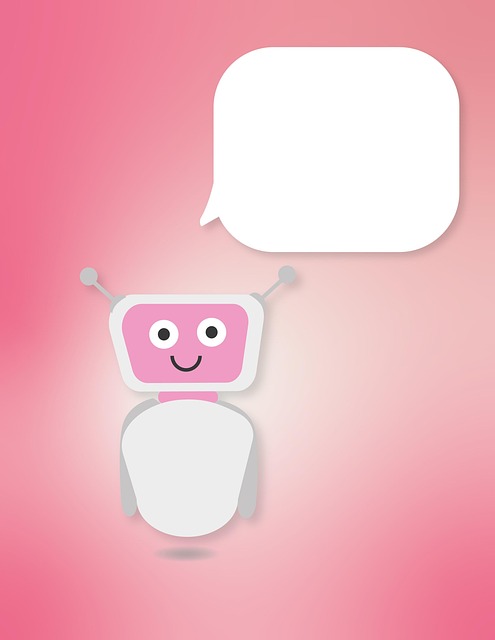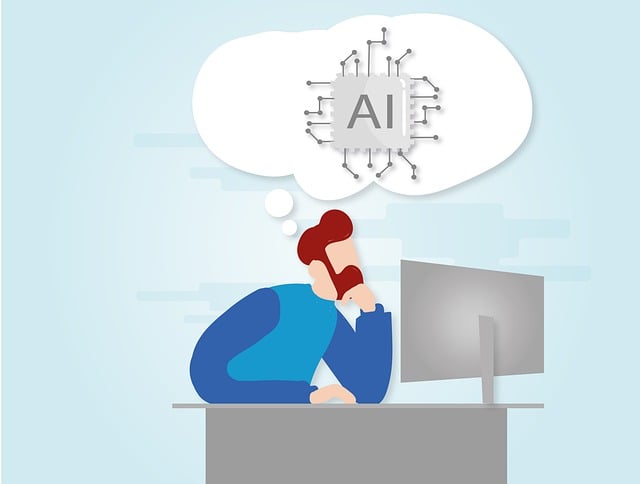conversational AI, powered by NLP and machine learning, is transforming digital interactions through AI chatbots and assistants that offer 24/7 support, instant responses, and personalized experiences in various sectors, notably customer service and healthcare. These tools handle routine tasks, freeing human agents for complex issues. NLP enables natural language understanding, enhancing user satisfaction and operational efficiency. However, challenges like data accuracy, privacy, and bias in training data must be addressed to fully realize the potential of AI chatbots and assistants while maintaining ethical standards in ai customer service.
Conversational AI is revolutionizing the way we interact with technology. From AI chatbots to virtual assistants, these tools are making tech interactions more natural and accessible. This article explores the rise of conversational AI, its transformative impact on customer service, and the benefits of natural language processing in various tech contexts. We’ll also delve into challenges, ethical considerations, and future prospects, providing insights into how human-machine conversations will evolve. Discover how ai chatbots and assistants are reshaping our digital landscape through enhanced ai customer service.
- Understanding Conversational AI: The Rise of AI Chatbots and Assistants
- How AI Customer Service Transforms Support Experiences
- Benefits of Natural Language Processing in Tech Interactions
- Challenges and Ethical Considerations in Conversational AI
- Future Prospects: Enhancing Human-Machine Conversations
Understanding Conversational AI: The Rise of AI Chatbots and Assistants

Conversational AI is transforming how we interact with technology, making digital experiences more natural and engaging. At the forefront of this revolution are AI chatbots and assistants, designed to mimic human conversation while providing a wide range of services. These innovative tools leverage advanced natural language processing (NLP) and machine learning algorithms to understand and respond to user queries accurately and contextually.
AI chatbots and assistants have become increasingly prevalent in various sectors, from customer service to healthcare. They offer 24/7 availability, instant responses, and personalized interactions, enhancing user satisfaction and efficiency. In the realm of AI customer service, for instance, chatbots can handle basic inquiries, provide product recommendations, and even resolve simple issues, freeing up human agents to focus on more complex tasks that require empathy and critical thinking.
How AI Customer Service Transforms Support Experiences

Conversational AI, in the form of AI chatbots and assistants, is transforming the landscape of customer service. These advanced tools are designed to mimic human conversation, enabling seamless interactions with users. By understanding natural language queries, they can provide quick and accurate responses, enhancing user experiences significantly.
AI customer service offers 24/7 availability, instant support, and personalized assistance. Unlike traditional methods, it allows for more efficient issue resolution, reducing wait times and increasing customer satisfaction. Moreover, AI assistants can learn from each interaction, continuously improving their performance and expanding their knowledge base. This evolution in tech interactions makes complex tasks simpler, fostering a more natural and engaging support experience.
Benefits of Natural Language Processing in Tech Interactions

The integration of Natural Language Processing (NLP) in technology has transformed the way users interact with digital systems, making it more human-like and intuitive. One of the key advantages is the development of sophisticated AI chatbots and virtual assistants that can understand and interpret user queries in natural language. This capability enables people to communicate with machines as they would with another person, asking questions or issuing commands using everyday speech.
In the context of customer service, NLP-powered AI assistants offer round-the-clock support, instantly addressing customer inquiries. They can provide quick solutions, from basic troubleshooting to complex issue resolution, all while maintaining a conversational tone. This enhances user satisfaction and reduces response times compared to traditional customer service methods. With their ability to learn and adapt, these AI chatbots continuously improve, ensuring more accurate and personalized interactions.
Challenges and Ethical Considerations in Conversational AI

Conversational AI, powered by advancements in natural language processing (NLP), is transforming how humans interact with technology. While promising, it’s not without its challenges and ethical considerations. One significant hurdle is ensuring these AI chatbots and assistants provide accurate information, as incorrect responses can lead to user confusion or even harm, especially when dealing with sensitive topics like healthcare or finance.
Moreover, privacy and data security are paramount. As AI customer service agents often process vast amounts of personal information, developers must implement robust safeguards to protect user data from breaches or misuse. Bias in training data is another critical issue; if not addressed, it can lead to discriminatory outcomes in areas such as hiring decisions or loan approvals. Striking a balance between personalization and privacy will be key to realizing the full potential of Conversational AI while upholding ethical standards.
Future Prospects: Enhancing Human-Machine Conversations

The future of human-machine interactions holds immense potential with the continued development of AI chatbots and assistants. As technology advances, these conversational agents are becoming increasingly sophisticated, capable of understanding nuances in language and context. This evolution promises to revolutionize customer service, making it more efficient and personalized. Imagine engaging with an AI assistant that can anticipate your needs, provide tailored solutions, and offer a natural, human-like conversation—all while learning from each interaction to improve over time.
The integration of advanced AI customer service platforms has the potential to transform various industries. From healthcare to finance, these intelligent systems can handle complex queries, provide instant support, and reduce response times significantly. By leveraging machine learning algorithms, ai chatbots can adapt to individual user preferences, ensuring a unique and satisfying experience for each customer. This level of personalization not only enhances customer satisfaction but also fosters stronger relationships between users and the technology they rely on daily.






